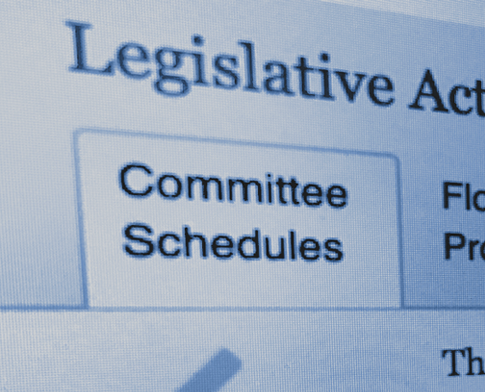Trade Update (March 30)
House Sends “Phase Three” to President Trump’s Desk for Signature
On Friday (Mar. 27), the House passed a $2 trillion coronavirus relief package that provides a wide variety of assistance to individuals, small businesses, and other major industries.
The package, H.R. 748, the “Coronavirus Aid, Relief, and Economic Security Act” (CARES Act), passed through a voice vote, although many lawmakers returned to Capitol Hill after Rep. Thomas Massie (R-KY) drew bipartisan condemnation for insisting on a quorum related to the legislation.
Lawmakers debated the legislation for roughly four hours Friday morning (Mar. 27). The Senate passed the legislation late Wednesday night (Mar. 25) by a vote of 96-0 and contains the following:
● More than 150 million households would receive checks under the legislation, which will send payments of $1,200 to many individual Americans plus $500 for children. People with incomes above $99,000 are not eligible, and the total benefit is phased out for people earning between $75,000 and $99,000.
● $400 billion to help small businesses retain payrolls and $250 billion to boost unemployment insurance.
● $600 per week for four months for laid-off workers, in addition to whatever benefits their respective states provide.
● $25 billion in grants and $25 billion in loans to passenger airlines.
Gov. DeWine Labels Steel, Steel Products as Essential
On Monday (Mar. 23), Ohio Governor Mike DeWine (R) included steel and steel products as an essential work under Director of Ohio Department of Health Amy Acton’s stay at home order.
Both steel and steel products were listed under the “Manufacture, distribution, and supply chain for critical products and industries,” section.
To view the order in its entirety, click here.
Senate Finance Urges Trump to Provide Tariff Relief
Senate Finance Committee Republicans led by Chairman Chuck Grassley (R-IA) wrote to President Trump on Wednesday (Mar. 25) morning urging him to “decrease the economic harm from COVID-19” through trade policy.
The letter, which can be viewed here, addresses five major concerns from the 12 Republican Finance members:
1) Coordinate with other countries to address import and export restrictions, along with “avoiding unnecessary and unexpected cost increases and critical supply shortages.” In addition, the senators urged him to pause any “Buy American” provisions that could “paralyze” supply chains.
2) Consider tariff relief on medical devices, pharmaceutical products, and any other health or safety products needed to combat the coronavirus pandemic. Further, the group called on the administration to conduct a thorough review on products from China that have been subjected to 301 tariffs in accordance with consultation from medical professionals and federal agencies tasked with regulating health and safety products.
3) Provide a temporary deferral of duty collection for businesses to opt-in to, similar to the Internal Revenue Service (IRS) providing Americans with an additional 90 days to make tax payments without incurring interest or penalties.
4) The senators urge the U.S. Trade Representative’s (USTR) office to consider expanding and extending tariff relief through the exclusion process for Section 301 tariffs. The relief provided under the current exclusion process is only one year long, meaning that many products may start facing high tariffs in the coming months. Automatically extending tariff exemptions for another year could eliminate added costs during a period of economic unrest for many businesses and consumers, according to the letter.
5) Finally, the senators call for suspending implementation of any measures, new or pending, that would create uncertainty or undue difficulty for American workers, families, farmers, ranchers, and businesses, and asking our global trading partners to do the same. The group urges President Trump to consider “a total moratorium” on new tariffs or tariff increases for the time being.
Trump Slams GM for Ventilator Production
On Friday (Mar. 27), President Trump lashed out at General Motors (GM) after reports emerged that his administration canceled a deal to buy tens of thousands of ventilators GM had produced in partnership with ventilator manufacturers.
The New York Times reported that a deal was struck between GM and medical supplier Ventec to provide up to 80,000 ventilators, but was called off after FEMA said it needed more time to assess how much the ventilators would cost. Trump also called on GM to reopen its shuttered plant in Lordstown, Ohio.
Both GM and Ford have partnered with medical device suppliers to produce ventilators for the coronavirus outbreak but they told POLITICO this week their plans are still in the early stages. After Trump’s tweets, GM issued a statement saying it and Ventec will produce ventilators at its Kokomo, Indiana plant, but the first systems will not be available until sometime in April.[1]
Ford said in a statement Friday (Mar. 27) that it is “in active conversations with the administration” and would provide updates on timing and ventilator production figures soon.
Late Friday (Mar. 27) afternoon, President Trump invoked the Defense Production Act.
“Our negotiations with GM regarding its ability to supply ventilators have been productive, but our fight against the virus is too urgent to allow the give-and-take of the contracting process to continue to run its normal course,” Trump said.
“GM was wasting time,” the president asserted. “Today’s action will help ensure the quick production of ventilators that will save American lives.”
EU and WTO Agree to Trade Court
The European Union (EU) and 15 other World Trade Organization (WTO) members including China, Canada, Mexico, Switzerland, Singapore, and Hong Kong agreed to solve trade disputes among themselves by resorting to a tribunal modeled on WTO’s appellate body, effectively isolating the U.S.
The U.S. has repeatedly blocked the selection of judges to the appellate body.
Under the new system, “appeals will be heard by three appeal arbitrators selected from the pool of 10 standing appeal arbitrators composed by the participating members,” according to the legal text of the agreement.[2]
References
[1]Bade, Gavin. “Trump slams GM over ventilator production delays, costs.” Politico Pro. 27 Mar. 2020. https://subscriber.politicopro.com/article/2020/03/trump-slams-gm-over-ventilator-production-delays-costs-1904079
[2]Vela Hanke, Jakob. “EU and 15 WTO members agree to trade court, circumventing Trump.” Politico Pro. 27 Mar. 2020. https://subscriber.politicopro.com/article/2020/03/eu-and-15-wto-members-agree-trade-court-circumventing-trump-3978563
HOUSE.GOV
The Week Ahead
For the main events of the next week and more, go straight to the key events on the house.gov website.
SENATE.GOV
The Week Ahead
For the main events of the next week and more, go straight to the key events on the senate.gov website.


